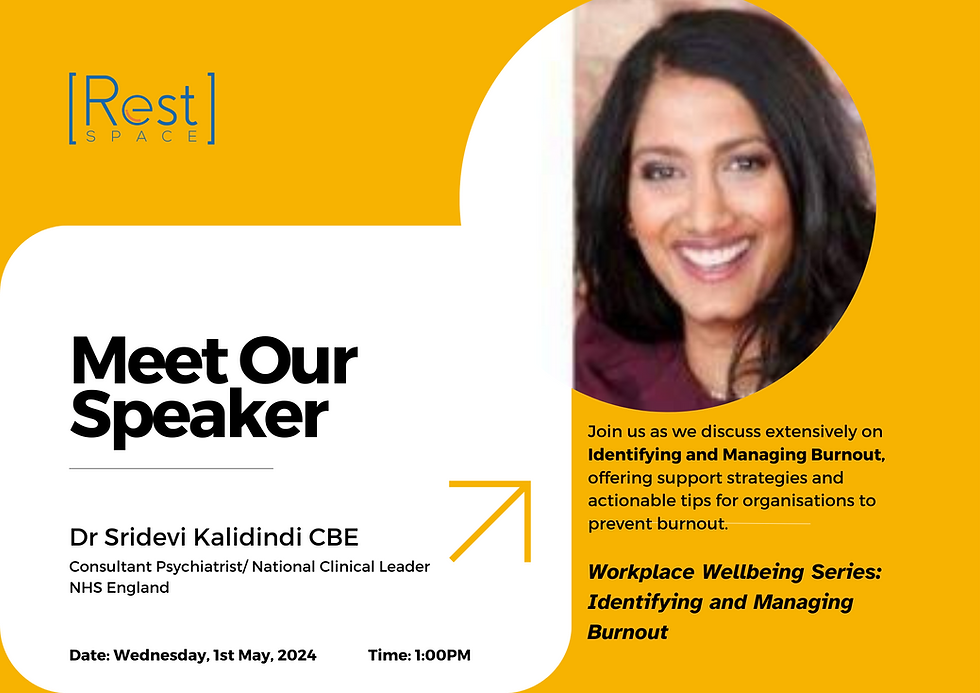When rest isn't best - long COVID, insomnia and MSK
- Kate Mulligan

- May 19, 2022
- 3 min read
Too much of anything isn't good for you and rest isn't an exception to that rule. Then why are we bombarded with messages to tell us to rest more? As a population, we are generally not resting enough. Many of us are not getting ample rest at night or throughout the day. Many of us are misinterpreting what is rest.
We need more rest and we need better quality rest.
Around 80% of people are not getting enough sleep with 30% suffering from insomnia. It's safe to say that, for the majority, getting too much rest is the last thing they should be concerned about. But there are times when we need to be more conscious of our drive to rest. Understanding the drivers of your habits can help you make healthier choices. Rest is a crucial part of a healthy lifestyle that also includes activity. Balancing your activity and rest is important. There may be times we delay treatment for underlying health issues by resting more.

What does good rest look like?
Feeling well-rested after a good night's sleep
A short nap during the day, or occasionally a longer one when needed
Getting sensory and cognitive breaks during the day
What does too much rest look like?
Regularly sleeping long hours (10+hrs)
Regularly having long naps (1+ hours a day)
Regularly napping multiple times a day
Resting too much may be a symptom of underlying health challenges. We recommend you talk to your doctor.
There are some health challenges that make us want to rest more but it potentially isn’t the best course of action. This isn't medical advice but rather a prompt to consider your context and speak to a medical practitioner if necessary.
Musculoskeletal conditions (MSK)
Excess rest to manage symptoms may not be the best. A key way to improve MSK in the long term is regular movement and activity. You should talk to your doctor and physio to understand how much you should be resting during the day. If you find yourself resting to manage symptoms you should bring this up with your doctor and find more effective ways to manage those symptoms.
Long COVID
Pacing your recovery is important with long COVID. Jumping straight back into your old routine may cause a flare-up of symptoms or burnout. But it is important to ensure your symptoms such as lack of stamina are not deteriorating due to too much rest. Steadily increasing your activity levels is important for recovery. If you find yourself increasing your rest periods instead you should talk to your doctor about this. At work, your occupational health team would be able to provide more support.
Insomnia
When it comes to insomnia it is often recommended to limit napping during the day to make it that little bit easier to try and sleep at night time. Improving your nighttime sleep long term is the priority. If you feel you are suffering from insomnia it is important to talk to your doctor who will be able to help you through treatments and coping methods. Your occupational health team at work may also have more resources to help you improve your sleep.
Chronic fatigue
The causes and treatments for chronic fatigue are extensive. It is important you seek medical help if you are experiencing chronic fatigue. Naps can help you manage the symptoms however excessive napping should be discussed with your medical practitioner.
Be conscious of using napping as a bandaid for underlying health issues. Napping is a powerful habit that can make us feel better, and improve our health and performance but only if it is used correctly. If you suspect you have an underlying health issue that you think is causing you to nap more it is important to talk to a medical professional about how to manage this.
Life is all about balance, there may be days when you have underlying health issues but need to be on the top of your game. Understanding when you are resting too much and how this rest can impact your recovery is important.
What does a good rest look like?
Feeling well-rested after a good night's sleep of between 7-10 hours, uninterrupted
A short nap during the day, or a longer one if you are an athlete in training or not feeling well
Getting sensory and cognitive breaks during the day
What to find out about the best environment to rest at work? Check out our Rest Space.




Comments